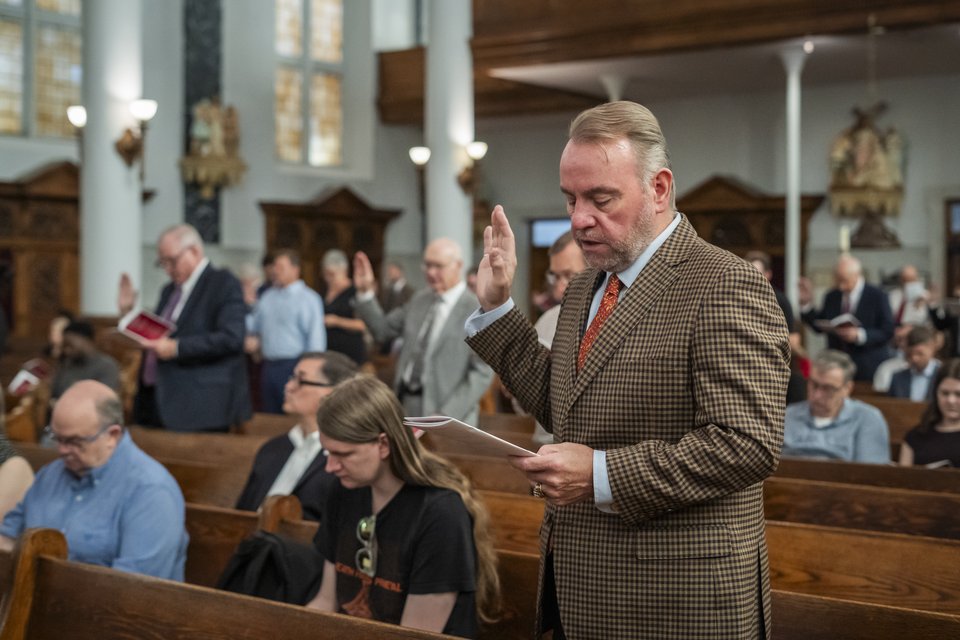Center for Augmenting Intelligence in Urban Health to explore practical uses for emerging AI tools in local community
Editor’s note: The Catholic Services Appeal is essential to the mission of the Archdiocese of Detroit. It funds and supports more than 100 ministries that serve the local Church in southeast Michigan, including Detroit Catholic. Visit www.givecsa.org to support the mission by making a gift today. We are grateful for your generous support and for your prayers.
DETROIT — At the University of Detroit Mercy, students and faculty in the College of Health Professions are working to harness the power of artificial intelligence to help the local community.
Phillip Olla, Ph.D., an associate professor in the college, has been working to develop the Detroit Mercy Center for Augmenting Intelligence in Urban Health, which he describes as a “solutions hub” that will use technology and artificial intelligence to address community health care needs.
If you're in the dark about how exactly AI can do that, Olla has an explanation.
“What we are noticing is AI is a great tool, but it is more than just a tool — it is a technology that can really transform a lot of things, but we are really seeing the technology used not necessarily for the best of things,” Olla explained to Detroit Catholic. “We are using it to get rid of people’s jobs; we are using it to make more money; we are using it in weapons; we are using it in a lot of things that are not necessarily the best use of AI.”
Olla said Detroit Mercy's new center is being created to focus on using AI for social good, leveraging its power to transform outcomes in the community, instead.
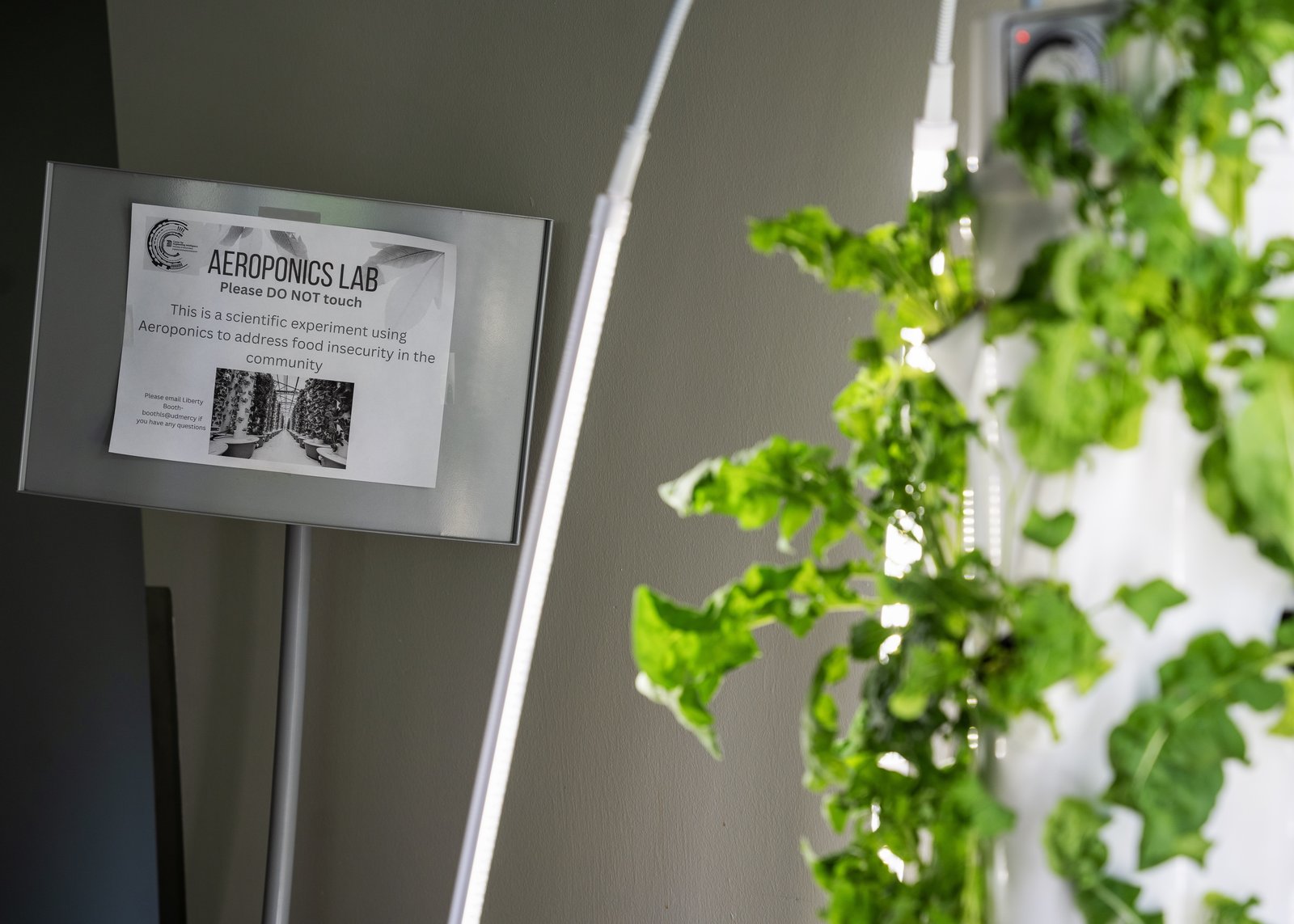
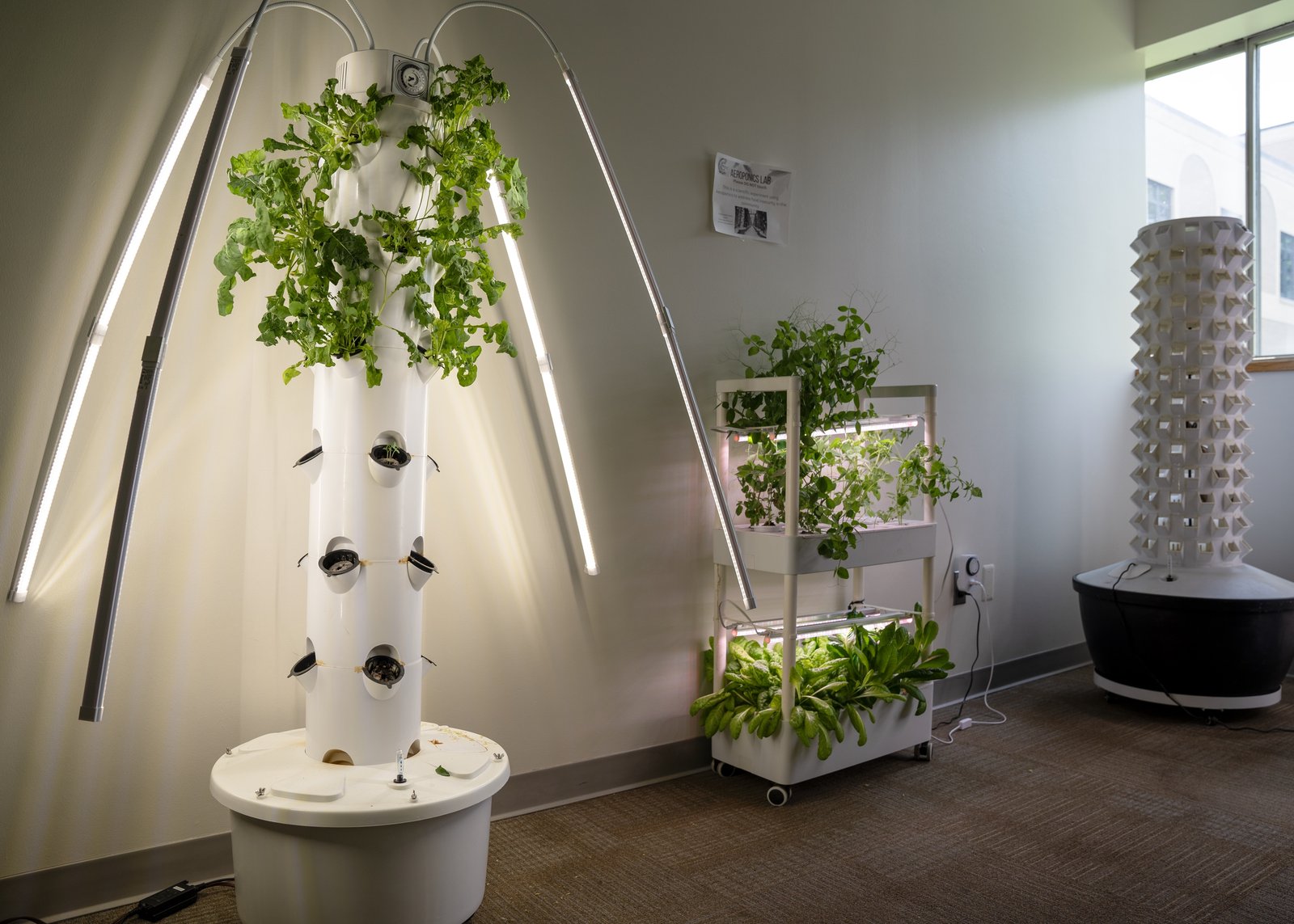
The rise of more visible AI use in daily life has led to an increased global discussion of the merits and dangers of artificial intelligence, especially as many struggle to understand and utilize it responsibly. Pope Francis has weighed in on the topic and is scheduled to participate in the G7 Summit, June 13-15, in Italy’s southern Puglia region in the session devoted to artificial intelligence.
In his message for the 2024 World Day of Social Communications, May 12, Pope Francis focused on AI with the theme: “Artificial Intelligence and the Wisdom of the Heart: Towards a Fully Human Communication.”
AI is “radically affecting the world of information and communication, and through it, certain foundations of life in society … (and) these changes affect everyone,” Pope Francis said in his message.
“How can we remain fully human and guide this cultural transformation to serve a good purpose?” Pope Francis asked while also acknowledging the merits and good that AI can do in specific fields. However, he warned that AI becomes “perverse when it distorts our relationship with others and with reality.”
Olla said that Detroit Mercy Center for Augmenting Intelligence in Urban Health is exploring how to use AI to address the health care challenges unique to an urban setting. This began with a forum on the university’s McNichols campus at the end of February, which brought together faculty and students from across different disciplines to meet with representatives from Amazon Web Services.
The forum addressed the development of AI tools that not only enhance human intelligence but also promote social equity and environmental sustainability, Olla said.
“The key takeaway from that meeting was that we were going to build an AI platform that allows us to do three things,” Olla explained.
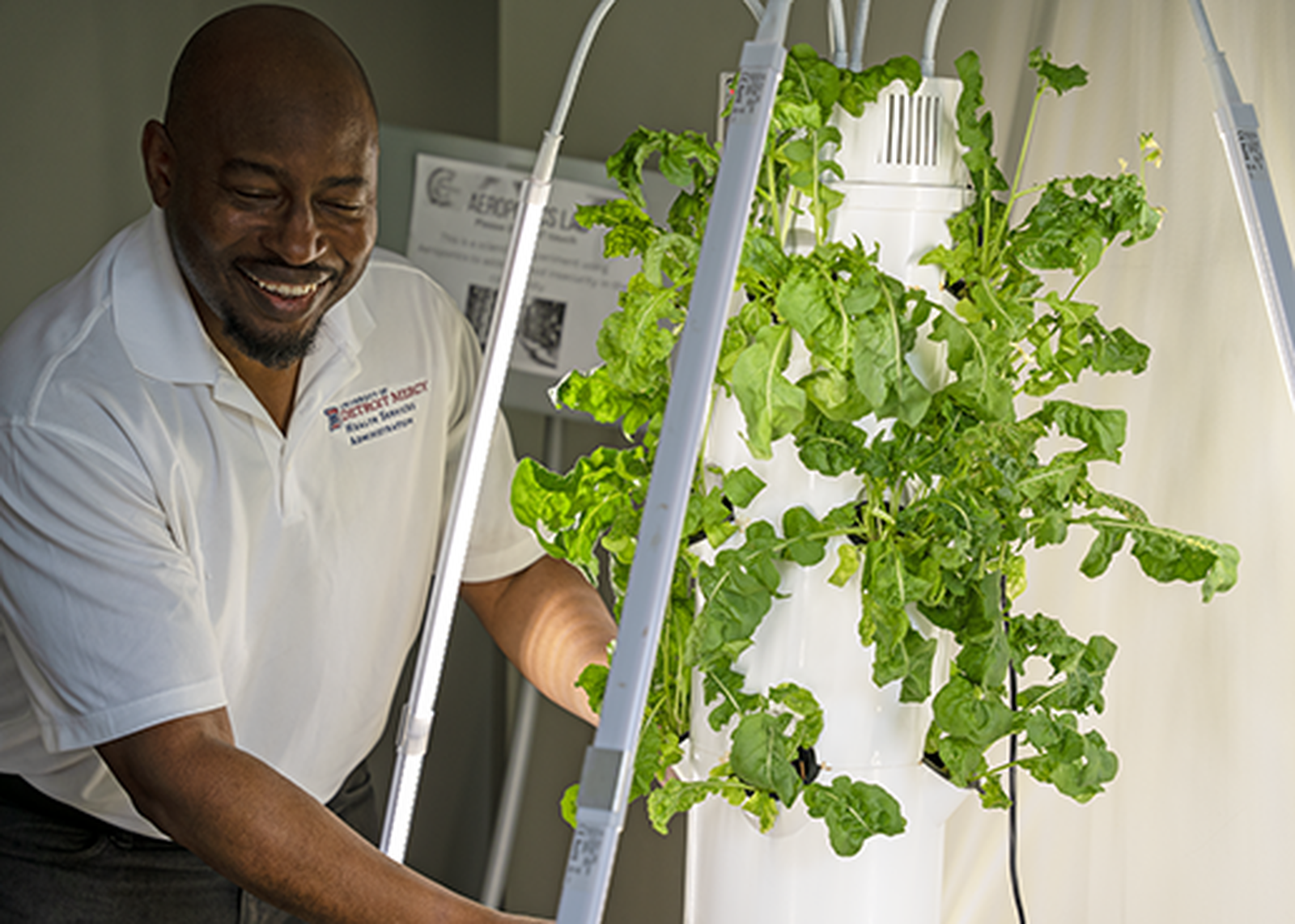
The first component, he said, is to integrate such tools into the community and provide the technology to help people stay healthy.
“The second component is that we are using AI to connect in a culturally meaningful way,” Olla added. "We are building an interface that can understand someone's education level, challenges, and what resources they actually need and connect them to those resources.”
The third goal is to use AI to explore different types of diagnostic technology and make it accessible, such as blood pressure machines or other wellness tools available in public, social settings such as hair salons.
Olla said the center hopes to build the infrastructure within a year, and thanks to the partnership with Amazon Web Services, it will not be starting from scratch.
“We are very fortunate to partner with Amazon Web Services because they have infrastructure that is already there, so a lot of what we are doing is really exploring the best way to use that infrastructure,” Olla said.
Detroit is the perfect fit for deploying the ideas behind the creation of such a center, Olla added.
“We have everything at our doorstep: We have great partners, and we have a great community that is aware of the issues and looking for solutions,” he said. "Detroit is an ideal solution for this AI health care innovation center because you see all the problems you are solving, and you see very quickly the impact (the solution can have).”
For example, Olla and his students have already begun using the technology to address food insecurity in Detroit, particularly when it comes to healthy and fresh vegetables.
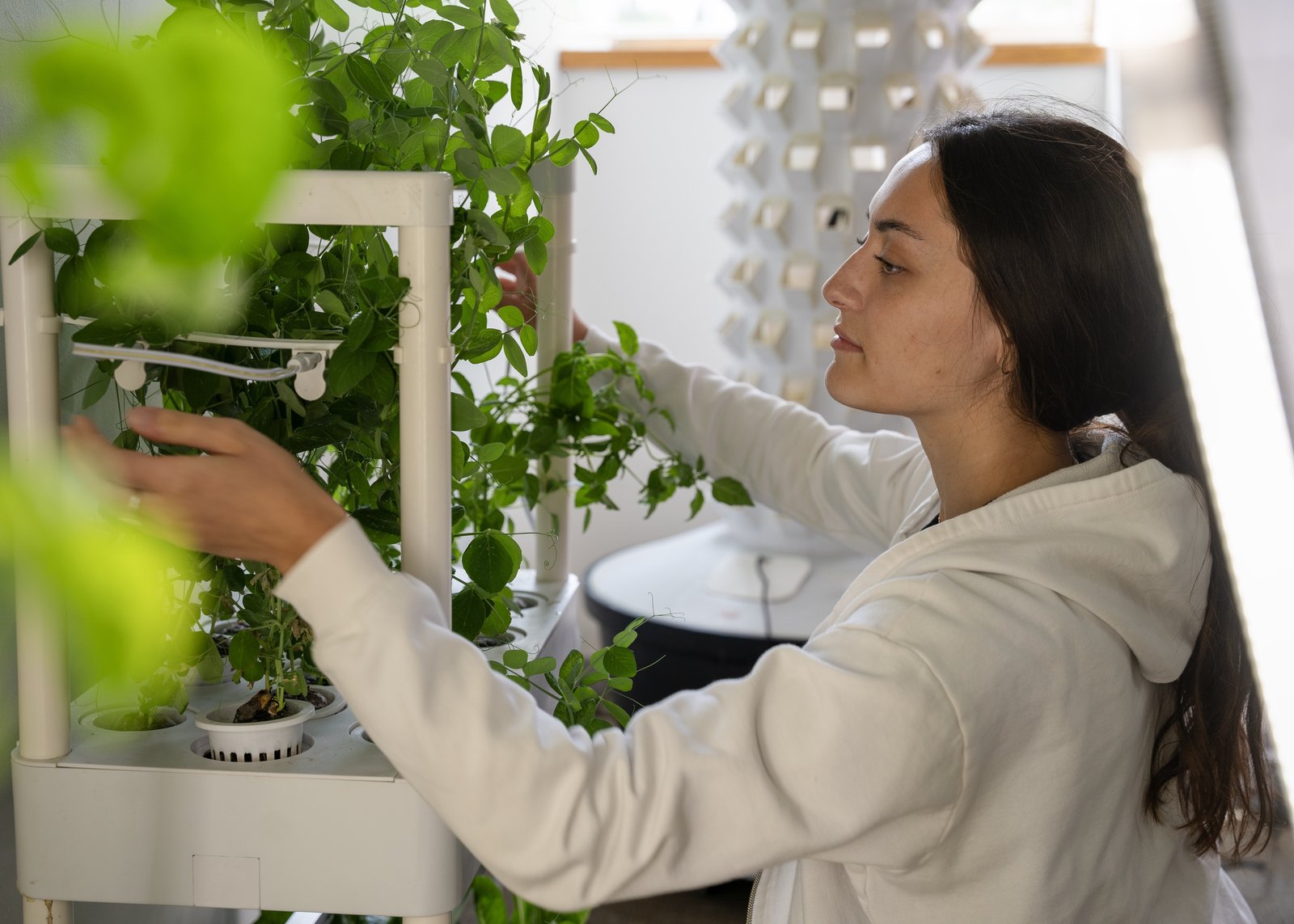
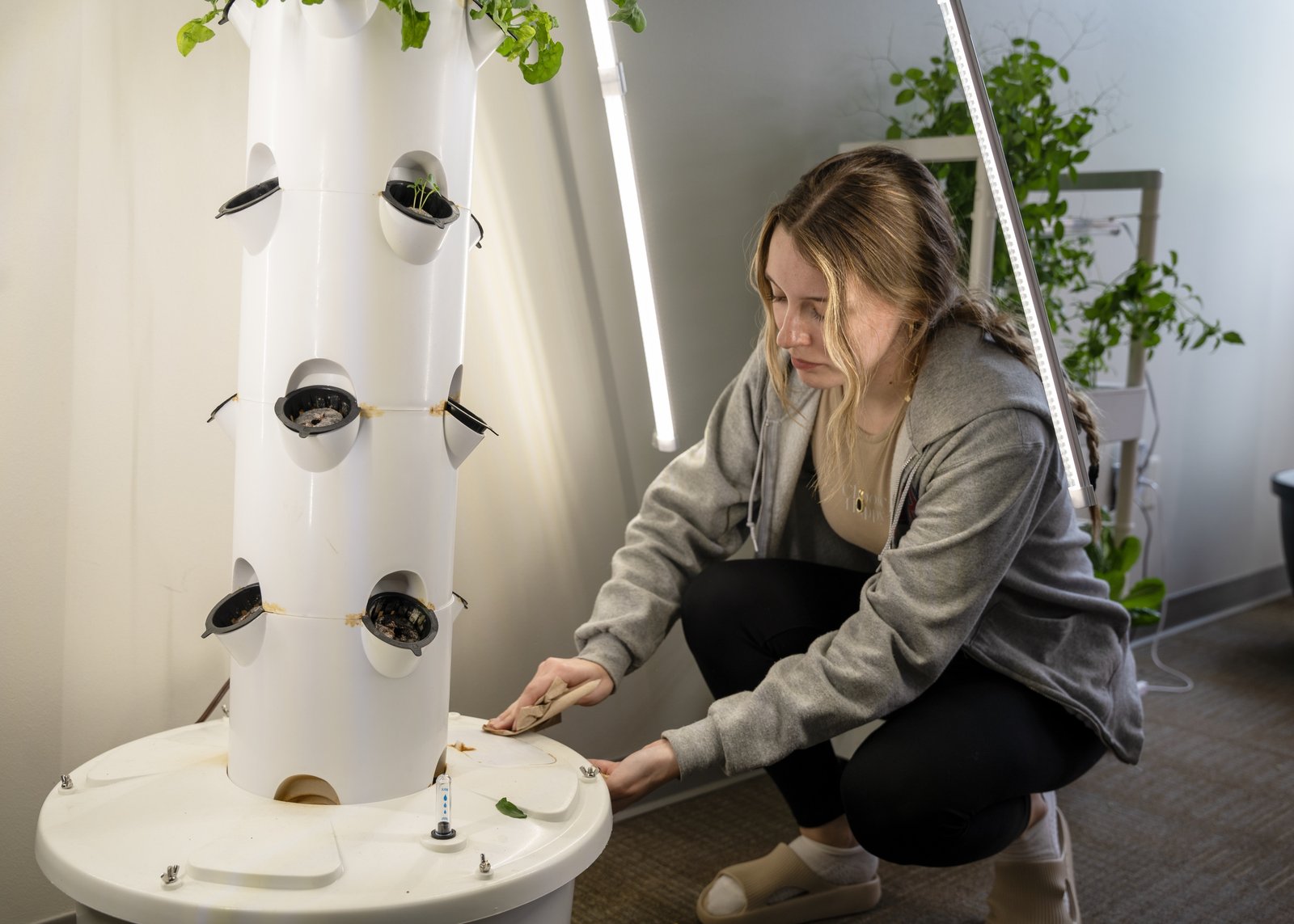
“In Detroit there are a lot of these grassroots initiatives that are being developed with urban gardens and community co-ops,” Olla explained. “We started exploring a technology called aeroponics where you are growing plants using water, nutrients and light.”
The technology uses 90 percent less water and no soil. Alongside two of his students, Olla has set up a small aeroponics garden tucked away in the halls of the college's building. Through trial and error, the students have learned how to use the technology, which consists of several shelf systems, to grow different vegetables.
“We have been exploring and purchasing equipment and developing a model and training courses on how to become an aeroponics entrepreneur and have this equipment in your home, basement, garage or warehouse and literally grow your food and make a living from it,” Olla said. “It uplifts people from a workforce development point of view, and it gives people new skills and technology. And it puts more, healthier food into our community."
Olla said the center is hopeful such an approach can be a viable and realistic solution in an urban setting for individuals with no experience in agriculture. But he said it's just one example of how technology can help make local lives better.
“This is one project where we demonstrate that it is doable and we demonstrate the technology,” Olla said.
Using what they’ve learned from the aeroponics experience, Olla and his students will begin building a training course and AI support app, which will allow anyone in the community who wants to take up aeroponics to make a plan.
“They can use our resources to figure out the appropriate seeds and the best products to grow to get the maximum yield,” Olla said. “This is just one piece of technology and AI that could make a dent in that problem."
Copy Permalink
Catholic colleges




